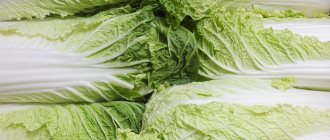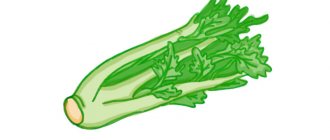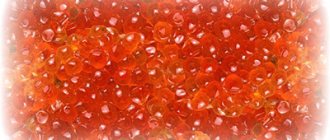Diet of a nursing mother
During pregnancy, doctors recommend eating foods that contain sufficient amounts of minerals and vitamins. Of course, these are vegetables and fruits, which are a kind of supplier of microelements necessary for the body. However, among the variety of products offered, you should choose those whose consumption will not negatively affect the health of the young mother and her baby.
With mother's milk, all the necessary elements enter the baby's body, which contribute to the growth and full development of the toddler. The diet of a nursing mother should be hypoallergenic, but at the same time as balanced as possible. It is worth noting that boiled vegetables can be consumed in almost everything, especially since there are no contraindications.
Pepper during breastfeeding
One of the most popular vegetables that is recommended for nursing mothers to eat is bell pepper.
Eating pepper while breastfeeding is very important. It contains vitamin C and rutin. This tandem helps strengthen the walls of blood vessels, which is extremely necessary in cases where the mother has certain health problems (anemia, diabetes, depression).
However, despite all the positive aspects of consuming bell pepper, it should be introduced into the diet of a nursing mother with extreme caution, since it is a vegetable that can cause an allergic reaction.
So, in what cases do we not include in the diet:
- You should not include bell peppers in your mother’s menu until the baby is at least 3 months old;
- It is not recommended to consume peppers raw at first. It is necessary to eat it stewed or boiled;
- Of all the variety of pepper colors, you should first introduce green, white, yellow, and only then orange and red;
- The first time you take pepper is best before lunch, but not on an empty stomach;
- If there is no negative reaction from the baby, then you can gradually increase the dose of pepper per day.
I would like to emphasize that it is best to buy bell peppers grown in your region, since the quality of imported ones may be questionable.
A mandatory requirement when introducing a new product into a nursing mother’s diet is constant monitoring of the baby’s reaction. If any reaction occurs in your toddler, you should stop taking the newly introduced product. This could be a disorder of the digestive system, skin redness, all kinds of rashes, and other allergic reactions.
There are dishes that do not take much time to prepare, but the result is a satisfying, high-calorie, and most importantly healthy dish. This is, for example, “pepper stuffed with meat.”
Is it possible for a nursing mother?
It is believed that bell pepper has an average level of allergenicity, so it cannot be completely classified as one of those products that are absolutely indicated for breastfeeding. However, a nursing mother should not completely exclude such a valuable vegetable. You just need to study the necessary recommendations given by experts and adhere to them:
- If you are breastfeeding, avoid eating bell peppers for the first 3 months. When the baby is at high risk of allergies, increase this period to 4-5 months.
- Eat your favorite vegetable only in the season when it ripens naturally. Winter fruits from greenhouses, grown with the use of growth stimulants, are completely unsuitable for a mother who is breastfeeding (more details in the article: is it possible to eat chicken hearts while breastfeeding?).
- Steam or stew the peppers. If the child’s digestion responds well to it, after a while you can try it raw.
- When introducing a new vegetable into your diet, start with yellow or green fruits - they contain fewer allergenic substances. If your baby doesn't have a reaction, you can add red and orange ones.
- The first use of a new food component should be in the morning and on an empty stomach - this will make it easier for you to track the reaction of the child’s body. Make a small portion - about 20 g.
- When pepper has already been introduced into the diet along with other products, still adhere to the recommended dosages. When cooked, you should eat up to 200 g per week, and raw - only 150 g.
- Try not to buy vegetables imported from distant countries, or grown in large quantities in greenhouses. What is grown for sale is replete with harmful additives. Give preference to vegetables grown on your own plot or bought from your grandmother in the neighborhood.
We suggest you familiarize yourself with what discharge during ovulation should be
Pepper from the garden, green or red, will be most useful for a nursing mother.
Can a nursing mother eat red bell peppers and what are their benefits?
Mothers in labor should follow the pediatrician's recommendations. The question of whether a nursing mother can eat sweet peppers in the first month after childbirth, when the newborn’s body is still very fragile, is especially acute. Doctors are quite loyal to this product and the reasons are as follows:
- When a young mother feeds her baby with breast milk, he receives nutrients from the foods she eats. Peppers contain the same amount of carotene as carrots. This substance helps improve vision and prevents the development of many diseases.
- During lactation, eating bell peppers is especially beneficial because it is enriched with vitamin C, antioxidants and folic acid. These components work to strengthen the baby's immune and nervous system.
- Yellow pepper is also recommended by experts during breastfeeding, especially for mothers who have problems with excess weight. Pepper in any form enriches the body with slow carbohydrates, which take a long time to digest and do not pass into fatty layers.
- During breastfeeding, green pepper delivers niacin and vitamin B to the body and has a positive effect on digestive processes.
- Pepper is rich in fiber, and this component is simply necessary for the intestines. It has anti-inflammatory enzymes and phosphorus, which has a positive effect on the human vascular system.
Some women do not know whether stuffed peppers can be given to a nursing mother, mistakenly believing that during heat treatment all the beneficial substances are lost. This vegetable in any variation will be an additional source of nutrients, and it will also help improve the quality of milk. The main caveat is the quantity. There should be moderation in everything, so you don’t need to eat this product in excess.
Important! Doctors strictly prohibit the consumption of canned foods, flour products and meat with a high percentage of fat. These products will make the milk tasteless.
Bell pepper for a nursing mother: recipes, benefits and contraindications
When breastfeeding, you should pay special attention to the foods included in the diet of a nursing mother. It must contain fruits and vegetables
However, many women are interested in whether it is possible to eat bell peppers while breastfeeding.
How is it useful?
Bell pepper is very beneficial for the body. It contains a real cocktail of vitamins and microelements:
- vitamins A, B, C, E;
- iodine;
- zinc;
- manganese;
- iron;
- chlorine;
- potassium;
- phosphorus;
- calcium.
This is not the entire list of beneficial substances that this vegetable is rich in. For those on a diet, one pepper contains only about 30 calories.
Bell pepper has many positive properties:
- improves vision;
- strengthens nails and hair;
- improves the functioning of the immune system and pancreas;
- prevents the formation of blood clots;
- improves skin condition;
- stimulates the functioning of mucous membranes;
- helps fight stress;
- gives energy;
- removes carcinogens from the body;
- prevents the development of cancer.
Can mothers do it?
This vegetable is considered a product with moderate allergenicity
Therefore, despite all its excellent qualities, nursing mothers should eat it with caution. There are several recommendations that you can follow while breastfeeding:
You should not eat bell peppers during pregnancy until your baby is three months old.
In cases where the baby is too susceptible to developing allergic reactions, it is advisable not to eat it for 4-5 months after birth. It is important to consider the seasonality of the product. If a nursing mother wants to eat bell pepper, then this should be done during its ripening season. For the first time, you can only eat your favorite vegetable stewed or steamed.
If the child does not have a negative reaction, you can try the pepper raw. You should try either the yellow or green fruit first. They are less allergenic. If the baby feels normal, then you can eat red or orange peppers. The first time you need to eat it in a small dose. 20 grams of boiled or steamed vegetable is enough. You need to eat it in the morning, but not on an empty stomach, so that you can observe the child’s body’s reaction to the new product. During breastfeeding, boiled pepper can be consumed up to 200 grams per week. You can eat no more than 150 grams of raw vegetables per week. It is advisable to buy vegetables grown at home, in gardens, and not in greenhouses. This pepper will bring much more benefits to a nursing mother and her baby.
Thus, this bright vegetable can be eaten while breastfeeding, but a young mother must adhere to the recommendations described above. So, she will be able to diversify her menu, as well as enrich her body with many vitamins and microelements.
Contraindications
There are several contraindications for which bell peppers should not be eaten. These include:
- stomach and duodenal ulcers;
- epilepsy;
- increased excitability;
- pancreatic diseases;
- ischemia.
How to cook?
If you are breastfeeding, you can make this simple salad: cut the pepper into strips. Then add vegetable oil and salt to it.
Many people love to eat stuffed peppers. Instead of minced meat, you can use vegetable mince. This stuffed vegetable is prepared in the oven. This will be much more useful during breastfeeding.
To prepare it you need to take:
- 10 pieces of bell pepper;
- 2 carrots;
- 3 onions;
- 500 grams of cabbage;
- 250 grams of sour cream;
- 200 grams of cheese;
- 50 grams of butter.
Preparation:
- First you need to remove the seeds from the pepper. Peel the remaining vegetables and cut into strips.
- Then fry the onion, add carrots to it, and then cabbage. After 20 minutes, the minced vegetables are ready.
- Grease the baking sheet with oil in advance. Fill the peppers with the filling and place on a baking sheet. Sprinkle all this with sour cream and a small amount of water for juiciness. Then sprinkle grated cheese on top.
- Place in a preheated oven and bake for about 40 minutes from the moment it boils.
Such an unusual, but at the same time simple dish will definitely appeal to mothers who are forced to limit themselves while breastfeeding. After all, eating something tasty is much more enjoyable. Therefore, you shouldn’t torture yourself, but rather cook something interesting and enjoy the food. And the positive emotions of a nursing mother will only benefit not only her, but also those around her.
Latest discussions:
Possible harm from eating bell pepper during breastfeeding
Any food, even healthy food, can cause side effects in the body of a nursing mother, so pepper should be consumed with caution. This applies more to the red variety and to individual dishes in the preparation of which this element is involved. For example, stuffed peppers can cause bloating if stuffed with cabbage. For nursing mothers, it is better to choose tender meat with rice or vegetables for stuffing. Let's consider a list of other restrictions and recommendations:
- If a woman has an allergic reaction to this product, then most likely her child will have it too. Allergies most often appear to red vegetables. Remember the symptoms: diarrhea, breathing problems, lacrimation.
- This product is not suitable for every body. Giving bell pepper to a nursing mother is completely prohibited if the child behaves restlessly after eating. This means that certain elements of the product irritate the baby’s digestive system.
- Despite the fact that fiber is beneficial, its abundance can also negatively affect the baby's health.
On a note! The main harm is caused by imported products, so the main recommendation of all pediatricians is to consume only domestic products and only in season. Enterprising housewives freeze fresh peppers in the summer, after cutting them into small pieces, and enjoy this product all year round.
In what form is it better to eat bell pepper?
Raw bell pepper is contraindicated for a nursing mother. But you can get out of this situation if you eat red or green peppers in stewed form. Stewed peppers are a real storehouse of microelements that will maintain the level of vitamins in the body. No need to think. That during heat treatment all beneficial substances will disappear. Of course, it definitely won’t do any good when frying in oil. But stewed or baked, this is just what you need.
For those who like to enjoy something more delicious than just stewed or baked peppers, we recommend preparing meat stuffed with rice. This dish is very easy to prepare and will not harm you.
You can also fry bell peppers over low heat with salt and a small addition of olive or any other vegetable oil.

When and in what quantity can a nursing mother try bell pepper?
There are many varieties of pepper, so the recommendations for their use are different. It should be immediately noted that admission is allowed only after the baby turns three months old. During this period, you can eat white, yellow and green peppers. Red varieties should be included in the diet in the fourth month. In this case, you must first make sure that the child is not allergic to this product. There is also a limit on quantity: no more than 100 grams per week, but not at once, but by dividing into 3-4 servings. Ideal option: eat 30 grams every other day.
Important! Particular attention should be paid to the procedure for introducing this vegetable into the diet. It is worth starting with small doses and monitoring the child’s reaction.
Cooking recipes
Remember that vegetables are only beneficial if they were grown naturally. Therefore, you need to buy this product in season and refuse the frozen vegetable mass that is offered in supermarkets. Prepare dishes from farm products. They can be purchased at any market. If you want to provide yourself with this vegetable in the winter, then you should freeze it yourself fresh or close the lecho. Below we will look at recipes for ready-made dishes.
Basics of proper cooking
Breastfeeding mothers are not recommended to eat at public catering establishments, so it is better to prepare food yourself. Vegetables are very delicate products and in order for them to retain their beneficial substances as much as possible, the stewing period should not exceed 15 minutes. In this case, the cooking process should be carried out over low heat. Don't add a lot of spices to your dishes. This can negatively affect the baby's digestive system.
Stuffed peppers with vegetable filling
For the filling, you can choose any vegetable crops: eggplant, zucchini or carrots. All vegetables should be thoroughly washed before cooking. Consider the recipe for stuffed peppers with mixed vegetables:
- The core is removed from the pepper.
- Zucchini, eggplant and carrots are twisted through a meat grinder.
- A little salt is added to the vegetable mass and the processed pepper is stuffed with it.
- Place the finished semi-finished products in a saucepan and add water so that it completely covers the products.
- Cook over low heat for 15 minutes.
The dish will turn out tender. You can put it on a plate using a tablespoon. By the way, vegetable broth can also be eaten.
Vegetable stew
Stewed peppers are a light dish with a vitamin complex. The cooking process will not take much time. First, decide on the additional ingredients that will be present in the stew and get started. You can buy: broccoli, cauliflower, lobbies, eggplants and zucchini. Consider the recipe for vegetable mix:
- Products need to be cut into cubes. Onions finely or in half rings.
- Place the vegetable mixture in a frying pan with high sides and simmer over low heat.
- Simmer for 15 minutes.
To avoid using vegetable oil, you can immediately pour a small amount of water over the vegetables. The finished dish should have a delicate sauce, so do not simmer it until the liquid has completely disappeared.
To know for sure whether your mother can eat bell pepper during lactation, you should consult your pediatrician or independently begin to introduce this product into your diet in small doses. Start only after your baby is 4 months old. If the baby reacts positively to this vegetable, then it can be consumed almost every day, but in moderate dosage.
We cook ourselves
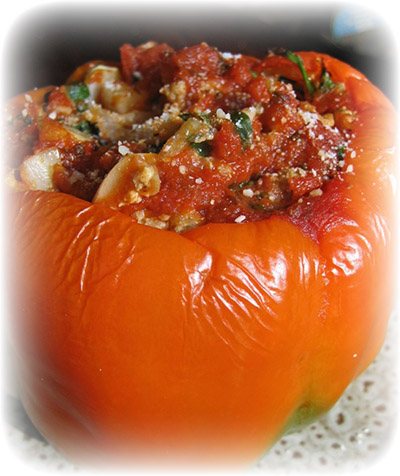
You can prepare many varied and healthy dishes from peppers. Vegetables that have not been heat-treated retain more beneficial properties. A salad of chopped peppers with a little olive oil will be tasty and healthy for mom and her baby. A popular and favorite dish by many is stuffed peppers. You can stuff the vegetable with lean beef, veal, rabbit or turkey or vegetables.
It is important not to overuse spices, including black and red pepper, as this can spoil the taste of breast milk.
It is better to cook in a double boiler, slow cooker or oven. Make sure that during lactation your diet is tasty, varied and healthy.
Let's explore the question: Should we expect the abolition of dairy cuisine in 2016?
Is it possible to have yellow bell peppers while breastfeeding?
There is no clear answer to the question of what a nursing woman should eat and what not. And all the complexity lies in the individual susceptibility of the newborn baby’s body. Thus, some infants tolerate almost any food in their mother’s diet well. And others may unexpectedly react even to the product that most breastfeeding women are allowed to eat in the first weeks after birth.
Yellow pepper is an incredibly healthy vegetable, as are its other shades. There is no difference in what color of fruit you purchased; the chemical composition of the product will be virtually identical.
But most often, nursing mothers tend to avoid eating vegetables with a bright red color. That’s why they buy yellow bell peppers. Here it is worth considering one thing - if the baby, in principle, does not tolerate such a product well, then its shade will not play any role.

Traditionally, yellow peppers and other types of this vegetable are avoided until the newborn is strong enough. Or rather, his digestive system will not be fully formed. If an infant almost never suffers from digestive disorders, does not suffer from abdominal pain or constipation and flatulence, then the mother can try yellow pepper.
However, you should wait a bit with this vegetable. It is optimal if yellow pepper appears on your menu no earlier than the day when the baby is at least one to one and a half months old. Sweet peppers are not allowed on the menu of a newly-made young mother who is feeding her baby with breast milk - there is a high probability of developing pain in the baby’s stomach.
What are the benefits of yellow pepper for a nursing mother during lactation?
Sweet yellow pepper is the main assistant in the fight for high immunity and good health. And all because the vegetable contains a huge amount of ascorbic acid or, as it is often called, vitamin C. At the same time, there is no vegetable crop in nature that could compete in the content of this vitamin with yellow bell pepper. That's why it's so good for your health.
By regularly eating sweet peppers, both the yellow variety and its other colors, you will be able to strengthen the body’s defenses and make it easier to resist seasonal respiratory diseases. Also, through mother's milk, the supply of vitamin C from yellow peppers will reach the rapidly growing and developing baby.
The yellow vegetable is also good for the health of the heart muscle, as well as the entire circulatory system as a whole. It is especially important to include this product in the menu for those nursing women whose vascular problems have begun to progress during breastfeeding.
This ingredient has a positive effect on a person’s well-being also because it contains vitamin P. As well as the most important elements for a woman who has recently given birth: B vitamins, iron and potassium. And silicon, which sweet yellow peppers are also incredibly rich in, will take care of the beauty of the skin, hair and nails of a successful mother.
What are the benefits of bell pepper for mothers during lactation?
Bell pepper is easily absorbed by the body of a nursing mother and is a healthy carbohydrate for her body, which is easily transformed into additional energy.
100 grams of this vegetable contains 29 calories. Therefore, it is often recommended to be added to the diet of a nursing mother as an option for losing weight and restoring previous forms.
Bell pepper has a number of beneficial properties that make it a necessary product during lactation.
Thanks to the large amount of vitamin C, it helps strengthen the immune system of a woman who is breastfeeding, and also fights insomnia and stress.
Due to the sufficient amount of calcium, it is able to stimulate the growth of nails and hair.
The amount of iron contained in bell pepper helps thin the blood and prevent thrombosis and thrombophlebitis.
The vitamin E content allows you to carefully care for the skin of the face and body at the cellular level, making it more delicate, soft and well-groomed.
Coarse fiber fights waste and toxins accumulated in the body of a nursing mother during pregnancy and naturally removes them from the body.
With the help of bell pepper they fight against some types of severe cancer.
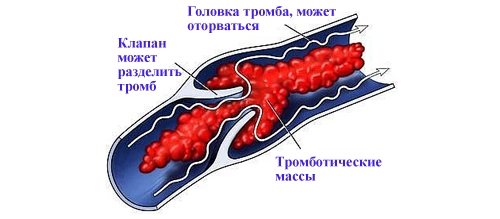
The benefits of eating bell pepper during lactation are obvious.
However, even such a healthy vegetable may have a number of contraindications, which you need to remember before you start eating it.
It is not recommended for use during lactation by mothers who have a number of diseases, such as:
- Ulcer of the stomach and duodenum.
- Disease of the pancreas (pancreatitis).
- Epilepsy.
- Cardiac ischemia.
- Increased excitability or neuroses.
How can yellow bell peppers be harmful for breastfeeding?
Despite its rich vitamin composition, bell peppers of any color can pose a very unpleasant danger for a young mother. The fact is that this vegetable has the ability to cause abundant accumulation of gases in the intestines. This is why yellow pepper should not be eaten by nursing women whose infants often suffer from intestinal colic.
An excess of any product, even the healthiest one, is unacceptable in the diet of a mother who is breastfeeding her child. For this reason, you should not overuse ripe yellow peppers, even if the baby tolerates this innovation in your diet well.

An abundance of fresh sweet peppers in food can harm the mother herself. Although this vegetable is incredibly beneficial for the heart and immune system, it can cause indigestion or severe stomach cramps.
Eating salads with fresh vegetables is especially careful if you have a history of gastrointestinal illnesses.
During breastfeeding, it is best to try yellow pepper in the form of heat-treated dishes for the first time. At the same time, the most useful vegetable is the one that was baked in the oven or steamed. By the way, baked peppers are less likely to cause bloating and allergies in the baby, while fresh ones are very common.
Is it okay to have green peppers while breastfeeding?
Green bell peppers are a little different from their fellow vegetables - sunny yellow, orange or bright red. The thing is that green sweet peppers are, in fact, simply fruits that have not had time to ripen, which did not have the opportunity to acquire their natural color.
Some experts claim that it is green pepper that has the maximum health benefits, and therefore can be present on the menu of a woman who is breastfeeding her newborn baby. People also believe that green pepper is preferable for another reason - supposedly it does not have a bright color, and therefore is much less likely to cause an allergic reaction in a newborn.
In fact, the composition of sweet peppers of any shade is approximately the same. The only significant difference is that green peppers have a more pronounced bitterness due to the fact that they were picked unripe. There are also slight discrepancies in the vitamin composition: nevertheless, green peppers are inferior to their brightly colored counterparts, because they contain slightly fewer useful elements.
Sweet peppers should be tried during breastfeeding only when the newborn baby has managed to grow up. Typically, pediatricians recommend avoiding this vegetable in the first months of breastfeeding; it is especially dangerous to eat it fresh.
And, although it is very beneficial for health, in the early period of lactation it can cause restless behavior in a newborn baby.
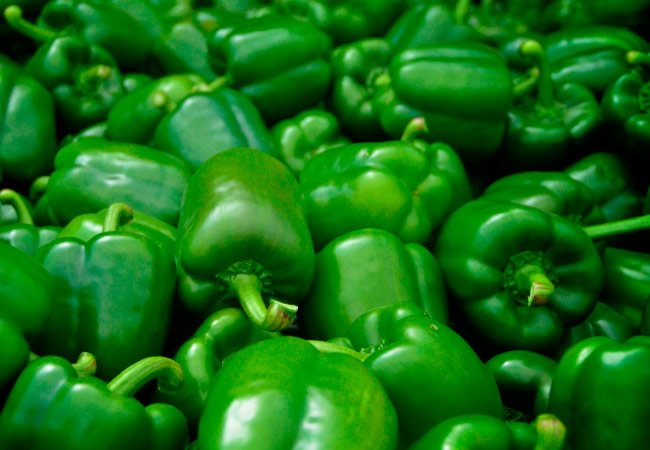
That is why it is best to postpone tasting green peppers during breastfeeding until the baby’s intestinal colic goes away. Also, to avoid possible allergies or the appearance of gas in the baby’s tummy, you should try a baked product or one that was cooked in a saucepan, steamed. Fresh vegetables are difficult for the gastrointestinal tract to digest.
Cooking methods
Of course, you can get the maximum benefit from pepper if you eat it raw (for example, in salads). However, when breastfeeding, especially at the beginning of lactation, it is better not to do this. Some substances contained in it can cause increased gas formation and even a rash on the baby's skin.
We invite you to familiarize yourself with the dangers of the polio vaccine
A nursing mother can eat pepper when it has been exposed to heat. Of all the cooking methods, the most preferable is stewing, since it is with this kind of processing that the greatest amount of nutrients is retained in the products. However, you don’t have to stop there only.
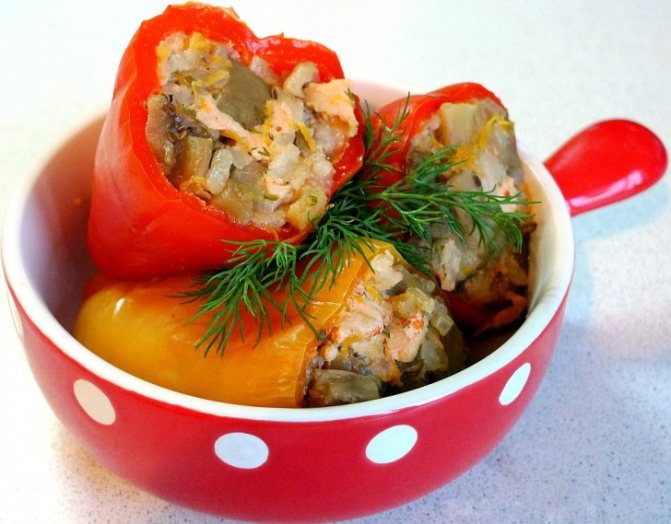
Stuffed peppers are an excellent dish that will be useful not only for a nursing mother, but also for other family members
We offer you some recipes. It is not difficult to prepare such dishes. You will like them and will be useful to your baby.
What are the benefits of green bell peppers during lactation?
Any sweet pepper contains a whole arsenal of useful substances, and among them there are such important vitamins as ascorbic acid, vitamins B and P, as well as the minerals iron, potassium and iodine. Thanks to this, the vegetable is especially necessary for young mothers, who often suffer from colds due to reduced immunity.
- Green pepper is very useful for female beauty, since its active natural substances regulate the condition of the skin of the body and face, as well as hair and nails.
- If you eat the product often enough, you can improve the appearance and thickness of women's hair, which is especially valuable for women who breastfeed their babies.
- Sweet green pepper is the basis for the proper function of the cardiac system, since vitamin P, which is part of the vegetable, significantly reduces the risk of heart attacks and stroke.
The product can be recommended as a natural and safe ingredient to prevent the worsening of varicose veins after childbirth.
The biologically active substances of green pepper have a positive effect on the emotional background of a young mother and also help normalize sleep. We can say that regular consumption of vegetables allows you to insure yourself against postpartum depression, which often manifests itself during breastfeeding.
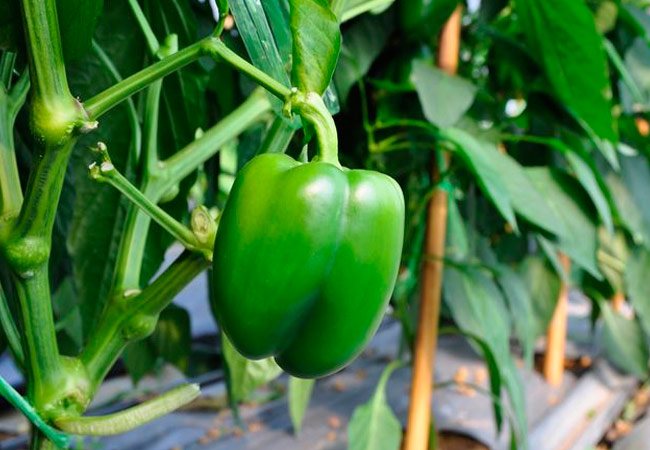
Peppers stuffed with vegetables in the oven
Many people love this beautiful, brightly colored vegetable, and for good reason. Sweet bell pepper, in addition to taste, has many beneficial properties:
- high content of vitamins of groups B, A, C, P;
- many minerals - iodine, phosphorus, magnesium, chlorine, fluorine and others;
- strengthens the immune system because it contains ascorbic acid;
- thins the blood and improves its composition, and also reduces blood pressure;
- Containing a large amount of iron, it prevents anemia;
- is an additional source of calcium, which is needed by both the baby for the proper formation of the skeletal system and the mother to strengthen it;
- improves appetite and, at the same time, with a small amount of sugar, it is considered a dietary product;
- reduces colic in infants, especially in the first months;
- helps strengthen blood vessels and prevents the formation of blood clots, which is why it is useful for varicose veins;
- certain substances it contains have a beneficial effect on the nervous system, helping to normalize sleep and cope with chronic fatigue, postpartum depression, loss of strength and stress;
- fiber and the alkaloid capsaicin help the digestive system, pancreas and the entire gastrointestinal tract function properly;
- strengthens nails, improves the condition and appearance of hair and skin.
Ingredients:
- peppercorns of the same small size - 10 pcs.;
- bulbs – 2 pcs.;
- carrots – 2 pcs.;
- white cabbage – 0.5 kg;
- sour cream – 1 glass;
- hard cheese – 150 g;
- butter – 1 tablespoon.
The peppers need to be washed and the core carefully cut out so that they remain intact. Sauté finely chopped onion and grated carrots in oil. Then add shredded cabbage and simmer covered for about 30 minutes until all the vegetables become soft. Add salt at the very end.
We suggest you familiarize yourself with Bifiform at what age can you
Stuff the peppers with the resulting filling and place in a greased deep frying pan, roasting pan or baking sheet. Pour in sour cream, add a little water, sprinkle with grated cheese on top. Place the bowl with pepper in a preheated oven and keep there for 40-45 minutes until fully cooked.
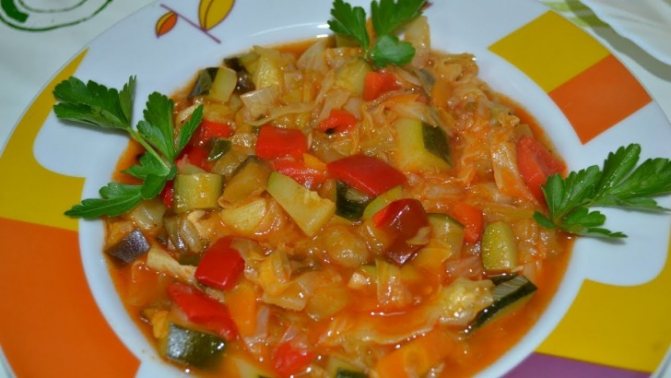
The composition of vegetable stew should include only those components that have already been tested for the child’s allergenicity
Ingredients:
- potatoes – 0.5 kg;
- carrots – 2-3 pcs.;
- onion – 1 pc.;
- zucchini – 1 pc.;
- cabbage – 0.5 kg;
- pepper – 2 pcs. medium size.
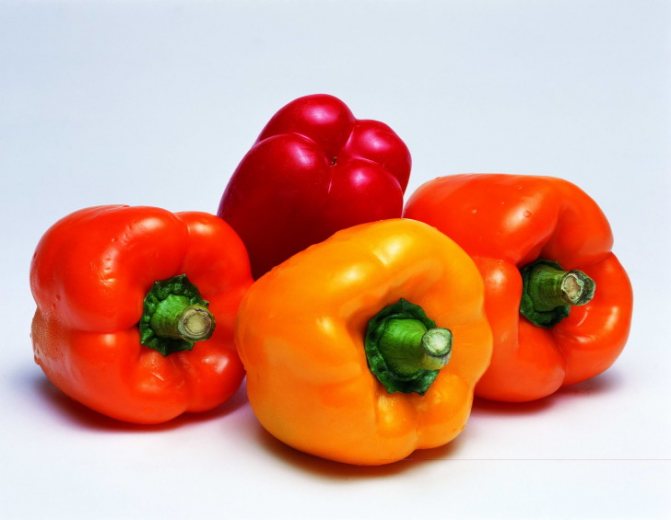
All vegetables need to be washed and cut into pieces of the same size, cabbage should be shredded. Fry each component in oil separately from the others, then put everything in one container, add salt, add a little water and simmer over low heat for about half an hour. You can add sour cream and fresh herbs to the plate.
It is not recommended to use green peppers for stews - sometimes they are bitter. It is better to take red - it tastes sweeter and contains more nutrients.
How green bell peppers can be harmful for a nursing mother with breastfeeding
Since green peppers are fruits that have not yet fully ripened, their bitter taste can also affect the quality of breast milk. Therefore, eating such vegetables during breastfeeding requires extreme caution.
Any pepper, no matter what color it has, is a product that causes increased gas formation in the intestinal walls. Therefore, like cabbage, it is better not to eat it in the first weeks of breastfeeding. Especially raw.
If a young nursing woman has increased stomach acidity, such a product can become a catalyst for deterioration in physical condition. It is not recommended to prepare fresh salads from green peppers if your stomach is not working well.
Very often, this healthy vegetable is grown using harmful pesticides that can penetrate into the pepper. This is why a young mother who is breastfeeding her baby should choose food products especially carefully. Also, during breastfeeding, green pepper is added to the menu list with caution if a woman has hypertension.
Stuffed peppers: is it possible or not?
The vegetable is consumed both raw and as part of a variety of dishes. It is suitable for baking, stuffing, adding to borscht. If you adhere to certain rules, then you are allowed to use it like this:
- Fresh meat or vegetables are just right for the filling.
- Lean beef, rabbit, and turkey are suitable for minced meat. The dish can be prepared in various ways. Experimenting with meat and vegetables or rice is encouraged. The main thing is that your son or daughter does not have allergies.
It is better to cook pepper in the oven or slow cooker: it is beneficial for the child and mother.

